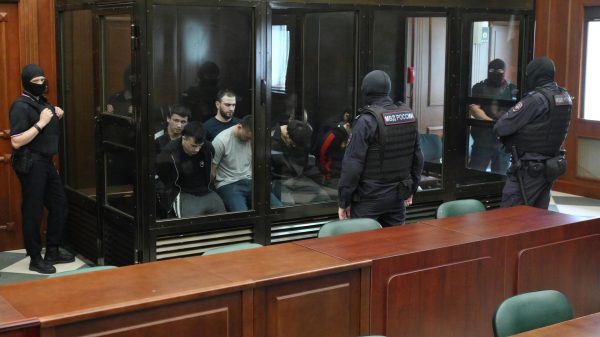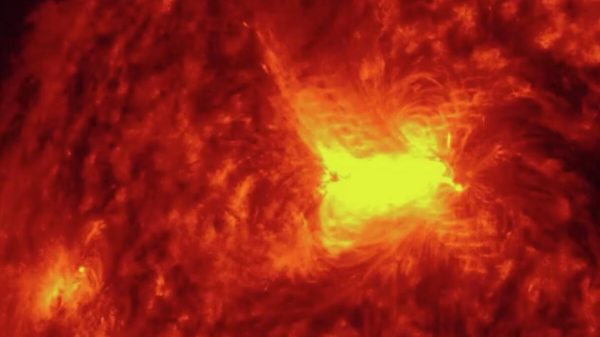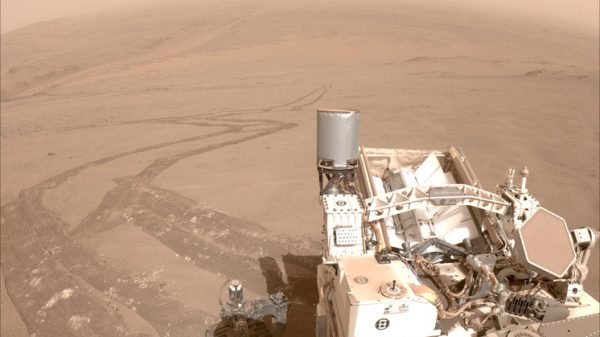 The Prime Minister has made halving inflation one of his five key promises to voters Photo: Stefan Rousseau/PA Wire
The Prime Minister has made halving inflation one of his five key promises to voters Photo: Stefan Rousseau/PA Wire
Shocking pause in the Cut inflation has raised fresh doubts about Rishi Sunak's pledge to halve inflation by the end of the year.
The consumer price index (CPI) was unchanged at 6.7% in the year to September, missing economists' forecasts. falling to 6.5%.
This highlights the difficulty of containing rising prices and the risk that the prime minister will fail to deliver on one of his five key promises to voters.
To achieve his goal In terms of inflation, the rate of price growth should slow down to 5.3. PC by the end of the year.
«We've made a lot of progress, but I know there's still room for improvement,» the prime minister said on Wednesday. “Tackling inflation remains my number one priority as Prime Minister. We will stick to our plan and deliver.”
The promise to halve inflation was always a gamble, given the unpredictability of key inflation drivers such as fuel and food prices.
When Sunak first made his pledge in January, it was considered the simplest of his five pledges. priorities. Inflation was expected to fall quickly in 2023.
However, a slower-than-expected decline this spring quickly cast doubt on that promise.
Although inflation subsequently resumed its decline, it is now stuck again.
This time the Office for National Statistics (ONS) blamed rising oil prices. Between August and September, petrol station prices rose by an average of 5p to just over £1.53 per litre. Diesel prices also rose 6.3p a liter last month to average £1.57.
It comes after Russia and Saudi Arabia cut oil production in the summer in a bid to boost prices.
>The rise in fuel prices was more than enough to offset the first monthly fall in food prices in two years.
Grant Fitzner, chief economist at the ONS, said: “We We continue to see food and non-food products. prices for alcoholic drinks are falling.
“We also witnessed a fall in prices for household appliances and air tickets, but this was offset by rising prices for gasoline and diesel fuel, as well as the cost of hotel accommodation.”
Food prices also remain unchanged the power of economic growth. external forces, says Fitzner, and this is one of the reasons why the UK still has the highest inflation rate among the major G7 advanced economies.
“We rely heavily on food imports and import prices have increased manifold. a lot,” he says.
“The UK is not alone: Germany is also experiencing very high food inflation. But if you compare us to countries like Italy and Spain, where much more food is produced locally, food price increases in those countries have been significantly lower because they are much less reliant on imports.”
Persistent inflation has become a global topic. US inflation rose to 3.7% in August and has remained at that level since then. Germany is seeing a similar picture.
Chancellor Jeremy Hunt said on Wednesday: “As we have seen in other G7 countries, inflation rarely falls in a straight line, but if we stick to our plan we still expect that it will continue to decline this year.»
«Today's news shows that this is even more important so that we can ease the pressure on families and businesses.»
Economists remain confident Sunak will hit his target despite recent setbacks.
Ofgem's new price cap, which saw typical household bills fall from £1,976 a year to £1,834, will be reflected in October inflation figures. The cut should lower the headline rate by about 1.5 percentage points, according to Jake Finney, an economist at PwC.
The headline rate is expected to be below 6% for the first time since early 2022.
Factory prices are also falling, which should eventually be reflected on shelves.
However, the future trajectory of inflation is less clear than it has been for several months.
p>Escalating conflict in the Middle East The Hamas attack in Israel has pushed oil prices even closer to $100 a barrel.
Fitzner says: “The current conflict… is in the non-oil producer zone, but it is clear that if it spreads, it will can have devastating consequences.»
Economists are also concerned about rising services inflation, which rose from 6.8% this year to August to 6.9% in September.
Although this is close to the Bank of England's estimate of 7%, Allan Monks said JP Morgan's chief UK economist says the rise will worry policymakers who are watching the figure closely. Core inflation, which excludes volatile food and energy price movements, also remains high at 6.1%.
Mons says: “The scope and strength of service inflation should be seen as a cause for concern. This part of the CPI tends to show more signs of resilience and is more sensitive to domestic inflation, including still-high wage growth.»
Paul Dales, chief UK economist at Capital Economics, believes Sunak will hit his target to halve inflation by the end of this year, but he is concerned about what happens after that.
“The recent jump in oil prices to $92 a barrel and the 35% jump in natural gas prices since the conflict in the Middle East began creates a clear risk that inflation will fall more slowly, perhaps to an average of 3%,” says he.
“Together with a more gradual weakening in core inflation and rising wages, this strengthens our view that the Bank will not cut interest rates until the end of next year.”
Mons believes that interest rates, currently unchanged at 5.25%, may even have to rise again «early next year if it becomes clear that inflation is stuck above target.»
< p>As Bank Governor Andrew Bailey emphasized last week, the last mile is always the hardest.
High interest rates and persistent inflation in an election year are a headache for Sunak, with some economists also warning of a recession in 2024.
Although the prime minister may end up strike his target, it may still be a hollow victory.
























































Свежие комментарии